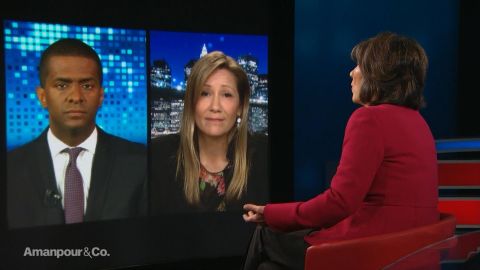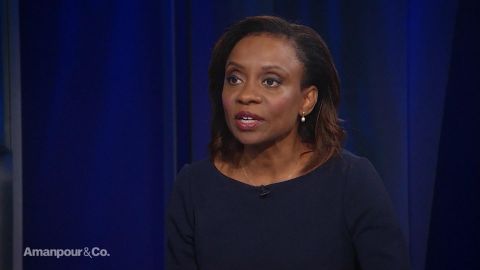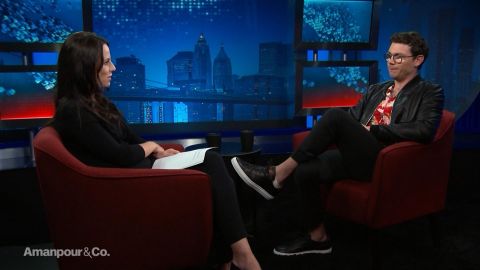Read Transcript EXPAND
JENNIFER EBERHARDT, AUTHOR, “BIASED”: Unconscious bias is something that we’re all vulnerable to. And so, you know, it can be defined as the beliefs and the feelings we have about social groups that can affect our decision-making and our actions, even when we’re not aware of it.
CHRISTIANE AMANPOUR: Even people who believe they’re so vested in equality and tolerance —
EBERHARDT: Yes —
AMANPOUR: Can even those people can have unconscious bias?
EBERHARDT: That’s right. They can. I mean, I think the difference, too is — I mean, a lot of times people think bias as something that only a few people have, or these people who are bigots, these are bad people. But this unconscious bias, you know, you don’t have to be a bad person to have that kind of bias and it’s something that we all can actually, you know, —
AMANPOUR: Fall into?
EBERHARDT: Yes, exactly.
AMANPOUR: And you fell right into it as you were beginning to research this book. You went to Charlottesville, Virginia —
EBERHARDT: Yes.
AMANPOUR: — which was obviously the scene of that terrible white nationalism. There was a person killed.
EBERHARDT: Yes.
AMANPOUR: And it became a flashpoint of divisive society. I want to take a specific example.
EBERHARDT: OK.
AMANPOUR: You were in an Uber car —
EBERHARDT: Yes.
AMANPOUR: — with the driver.
EBERHARDT: Yes.
AMANPOUR: And you were pretty surprised by your conversation that ensued.
EBERHARDT: Yes. I was.
AMANPOUR: Tell us.
EBERHARDT: Well, you know, yes, I got off the plane, just try to get to my hotel. I stepped in the car, and the Uber driver asked me, “Well, what brings you to town today?” So, you know, I’m kind of rattled by that because I wasn’t prepared to talk about why I had come to town, and I wasn’t sure —
AMANPOUR: Because it was such a flashpoint, very difficult conversation and experience.
EBERHARDT: It was — exactly. And I didn’t know sort of how he felt about it or how he — whether he participated in it or, you know —
AMANPOUR: He was white?
EBERHARDT: He was white, yes. So — and he was, you know — I guess maybe in the 60s or so. And so, I wasn’t — just wasn’t sure. And so, I decided to — you know, to have the conversation and take the leap of faith and, you know, talk to him about being there because I was writing this book and I do work on racial bias and he launched into conversation with me about how he was raised in part by a black woman, a domestic worker, but she was more than a domestic worker. I mean, she became a second mother to him. And she just died. And so, he shared with me that she was like the — one of the most important people to him in the whole world.
AMANPOUR: And then?
EBERHARDT: And then, it changed. The tone changed a little bit. And I got a bit nervous because he said to me, “There’s bigotry in my veins.” And so, I wasn’t expecting that, at that point especially. And I said, “Well, what?” And he says, “Well, I can feel it rising up.”
AMANPOUR: As I’m talking to you?
EBERHARDT: I didn’t know. So, I asked him, I said, “Well, when?” You know, “When can you feel it rising up?” And he thought about it, and he said, you know, “when I’m outnumbered.”
About This Episode EXPAND
Christiane Amanpour speaks with Bakari Sellers & Amanda Renteria about Joe Biden’s presidential bid; and Dr. Jennifer Eberhardt about unconscious bias. Alicia Menendez speaks with Ryan O’Connell about self acceptance and his new Netflix series.
LEARN MORE


